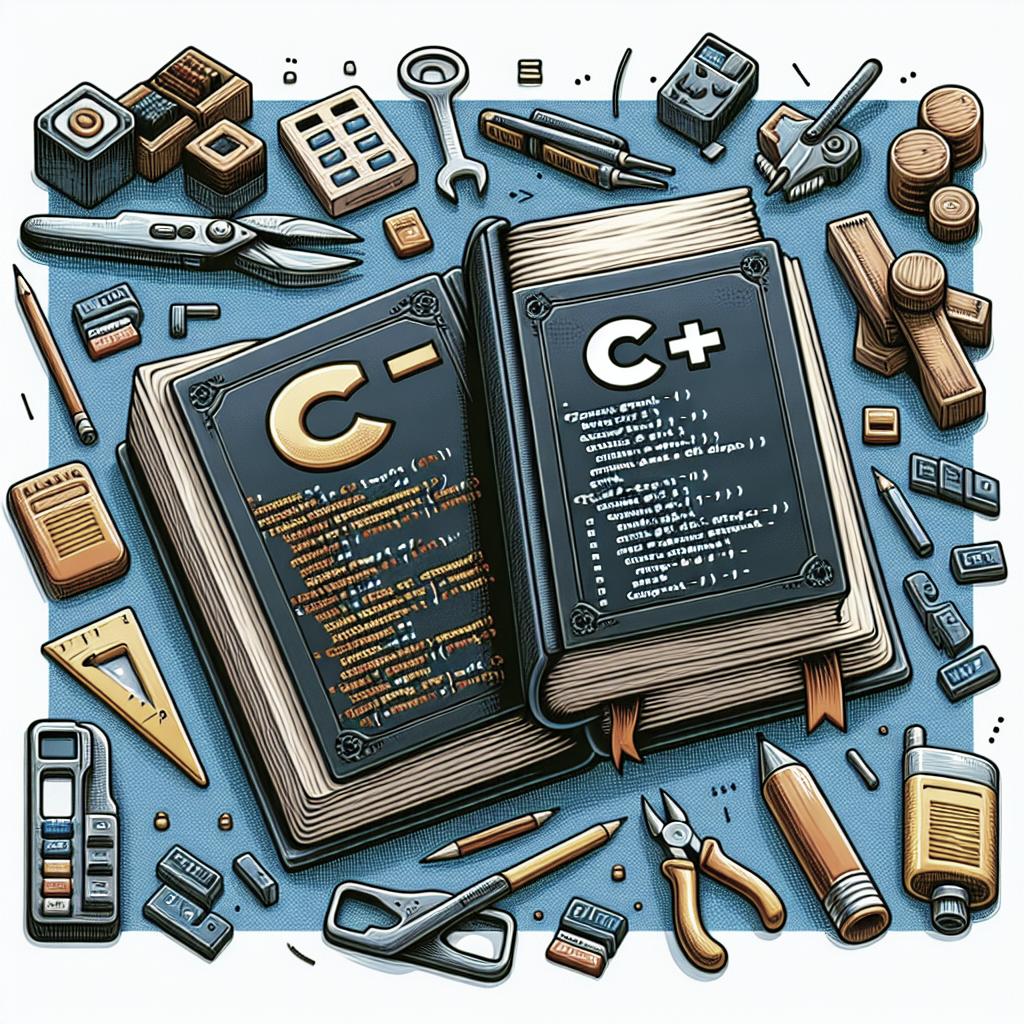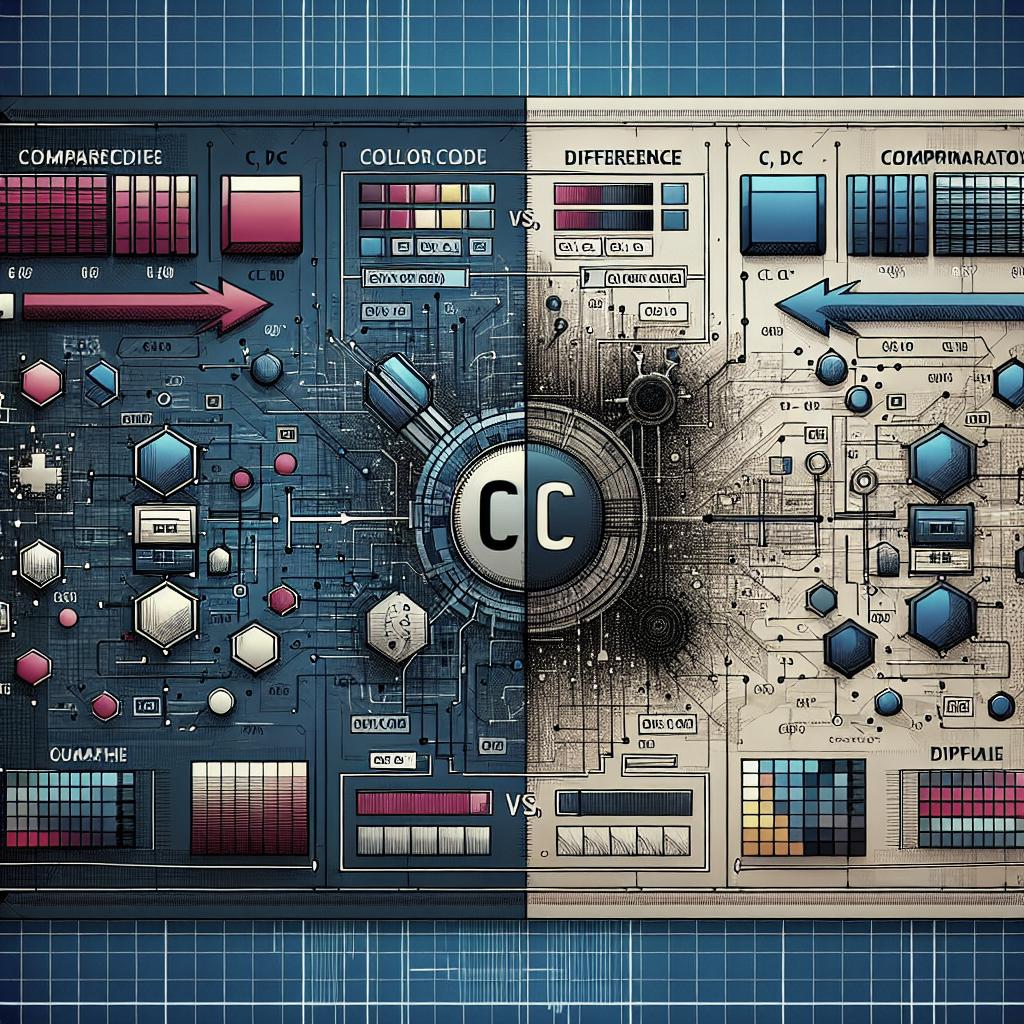html
Understanding the Differences Between C++ and C
C++ and C are two cornerstone languages within the realm of software development. While they share common roots, each language serves different purposes and has unique features. This blog post aims to explore the intricacies of C++, diving deep into its core components and highlighting how they differentiate from its predecessor, C. From variables and constants to control statements and functions, readers will gain a comprehensive understanding of how C++ builds upon the foundational aspects of C, adding layers of complexity and functionality. This exploration will benefit individuals looking to grasp the nuances of C++ for both academic pursuits and real-world programming challenges.
C++ Overview
C++ is a general-purpose programming language created by Bjarne Stroustrup as an extension of the C programming language. Known for its object-oriented features, C++ provides developers with a valuable tool for both high-performance applications and complex system-level programming. It combines the efficiency and fine control capability of C with additional capabilities that support object-oriented programming.
Unlike C, which primarily focuses on procedural programming, C++ allows developers to model real-world entities using classes and objects, promoting code reuse and modularity. This shift in paradigm introduced features such as inheritance, polymorphism, and encapsulation, which have become fundamental to modern programming. C++’s versatility extends its use beyond system software to applications in gaming, graphical user interfaces, and enterprise software solutions.
C++ Basics
The basics of C++ revolve around understanding its syntax, structure, and fundamental concepts that differentiate it from C. At its core, a C++ program is composed of a sequence of declarations and function definitions, which the compiler translates into executable code. While borrowing heavily from C, C++ introduces new syntax and constructs aimed at supporting object-oriented programming.
One of the critical differences in C++ is the introduction of classes and objects, allowing developers to encapsulate data and functions into bundled units. This encapsulation aids in managing complexity by hiding implementation details, making code more maintainable and scalable. Furthermore, C++ supports function overloading, enabling the creation of multiple functions with the same name but different parameters, enhancing flexibility and modularity.
C++ Variables and Constants
In C++, variables are identifiers used to store data values, and they must be declared with a specific data type before use. Unlike C, C++ provides stronger type-checking and type safety, preventing many common programming errors. Variables in C++ can also be initialized at the point of declaration, which facilitates more concise and readable code.
C++ introduces the concept of constants using the const keyword, allowing developers to define immutable values. These constants can improve code reliability by preventing accidental modifications to variable states. Furthermore, C++ features enumerations, or enum types, which are user-defined data types that enhance code clarity by representing a group of related constants under a single name.
C++ Data Types and Literals
Data types are crucial in determining the size and type of data that variables can hold. C++ builds upon C’s fundamental data types, such as int , float , char , and adds new ones like bool to accommodate logical operations, offering greater versatility in programming.
C++ also supports a wide array of literals, which are fixed values assigned to constants or variables. These include integer literals, floating-point literals, character literals, and string literals. Understanding these data types and their respective literals is vital in writing efficient and error-free C++ programs, ensuring developers choose the appropriate types for their specific use cases.
C++ Operators
Operators in C++ are essential components used to perform operations on variables and values, covering arithmetic, relational, logical, and bitwise operations. In addition to C’s extensive collection of operators, C++ introduces operators to support object-oriented features, such as the scope resolution operator ( :: ), which distinguishes between local and global variables.
C++ features operator overloading, allowing developers to define new behavior for existing operators when applied to user-defined data types. This feature is invaluable in aligning custom data types with conventional operators, facilitating intuitive usage and enhancing code readability. Through operator overloading, C++ further extends the possibilities for writing clean and efficient code.
C++ Input/Output
Input and output operations in C++ are managed through IOStream library, which offers various classes and operators designed for handling data streams. Unlike C’s printf and scanf functions, C++ utilizes the << (extraction) and >> (insertion) operators within the cin and cout objects to facilitate user-friendly input and output operations.
This approach not only simplifies the syntax but also allows for chaining multiple input and output operations. Additionally, C++ supports file I/O operations through the fstream library, providing classes like ifstream, ofstream, and fstream , which grant flexibility in reading from and writing to files, crucial for applications dealing with persistent data storage.
C++ Control Statements
Control statements in C++ govern the flow of execution based on certain conditions, critical in decision-making processes within a program. Building on C’s control structures, C++ introduces constructs like switch statements, for loops, while loops, and do-while loops, which are invaluable for implementing iterations and conditional execution.
C++ also features enhanced control statements such as break , continue , and goto , offering fine-grained control over the flow of execution. Mastering control statements in C++ is vital for developers to structure logical and efficient programs, especially in data-intensive and algorithmically complex applications.
C++ Functions
Functions are building blocks of C++ programs, allowing developers to encapsulate reusable code logic into named blocks. Beyond C’s function capabilities, C++ supports function overloading, enabling multiple functions with the same name but distinct parameters, thus increasing flexibility and enabling polymorphic behavior.
Furthermore, C++ introduces template functions, allowing developers to write generic functions that operate with different data types. Templates are instrumental in creating flexible and reusable code components, reducing redundancy and fostering a higher level of abstraction, crucial in developing scalable software solutions.
C++ Pointers and References
Pointers are specialized variables in C++ that store memory addresses, providing a powerful means of dynamic memory management and complex data handling. C++ extends C’s pointer functionality with the introduction of the new and delete operators for dynamic allocation and deallocation, crucial for efficient memory usage in large applications.
Additionally, C++ introduces references, offering an alternative to pointers. References provide a mechanism to create aliases for existing variables, facilitating easier management of function arguments and return values. Understanding pointers and references is key to mastering C++’s memory management capabilities, critical for building performance-driven applications.
Similar Reads
- Exploring C++ Templates and Generic Programming
- Object-Oriented Programming Paradigms in C++
- Advanced Memory Management in C++
Future Prospects
| Aspect | Features |
|---|---|
| C++ Overview | Extension of C with objects, versatility, and modularity |
| C++ Basics | Syntax, classes, and overloading |
| C++ Variables and Constants | Initialization, strong typing, and enums |
| C++ Data Types and Literals | Types and literals, bool types |
| C++ Operators | Operator overloading, new operators |
| C++ Input/Output | IOStream, cin, cout, and file handling |
| C++ Control Statements | Loops, switch, and control flow |
| C++ Functions | Overloading and template functions |
| C++ Pointers and References | Dynamic memory and references |


